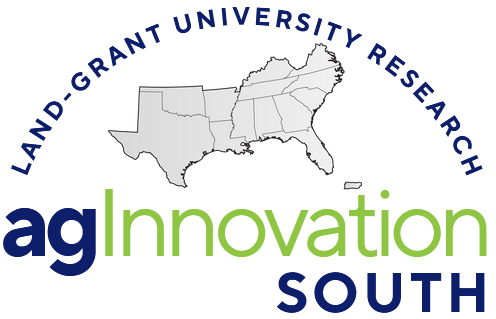
S1093: Management systems for beef cattle reared in subtropical and tropical environments
(Multistate Research Project)
Status: Active
Homepage
According to the United Nations, food production must double by 2050 to meet the demand of the world's growing population (FAO, 2009). Nonetheless, at least 1 billion people still experience inadequate intake of protein, and 165 million of these individuals are children. Resources for food and agriculture production will become more limited as the planet becomes more populated, and urban areas expand. Therefore, agricultural efficiency must increase dramatically during the next decades to meet the global food demand while maintaining ecological stewardship and proper use of limited natural resources.
Global meat consumption is expected to increase by 30%, which will require a 72% increase in current meat production by 2050 (FAO, 2009). Beef represents 25% of the total meat produced worldwide, and its consumption is projected to increase from 60 million to 130 million tons by 2050. At least 70% of the increase in beef production required to meet the growing demand is expected to come from subtropical and tropical regions of the planet (FAO, 2009), including southern US, Mexico, Central/South America, Africa, Asia, and Oceania. These regions contain more than 80% of the world's cattle population, predominately B. indicus-influenced breeds with diets based on forages and agricultural by-products (Robinson et al., 2014; FAOSTAT, 2019). In the US, approximately 30% of cattle contain Bos indicus genetics, and 50% of beef cows are located in the southern/southeastern states where both B. indicus-influenced cattle and tropical/subtropical climates predominate (NASS, 2017). Moreover, the annual average temperature in the US will increase 1.5 °C by 2050, which will continue to provoke erratic weather patterns and intensify climate disruptions (Vose et al. 2017). Beef production systems that utilize B. indicus cattle are expected alleviate the severity of climate change in the US and across the globe, given their greater ability to convert low-quality feeds into protein in tropical/subtropical climates compared with B. taurus breeds (Cooke et al., 2020a).
Bos indicus-influenced herds reared in subtropical and tropical regions, however, are typically managed using practices developed and validated for B. taurus breeds in temperate environments. Bos indicus and B. taurus are two individual subspecies and differ in several body functions related to beef production, including reproductive physiology, nutritional needs, social behavior, digestive system, and body composition (Cooke et al., 2020b). Hence, a fundamental step to enhance US agriculture and meet the increasing global demand for high-quality protein is to develop management practices tailored to cattle reared in US subtropical and tropical regions.
Based on these critical needs, we propose the creation of a multistate research project including representatives from US southern states with academic programs that focus on production of beef cattle adapted to tropical and subtropical environments. Representatives from other US regions with academic interests that align with this multistate research project will also be welcome to participate. Ultimately, this project will combine experts in different areas and disciplines related to beef production (i.e., cow-calf, stocker, feedlot), including specialists in nutrition, reproduction, genetics, behavior, and health management. This multistate research project will be different from existing S projects (e.g. S1045, S1064, S1086) as these are largely specific to genetic management and improvement, whereas this proposed project includes all disciplines related to beef cattle production. Hence, the creation of this multistate group will generate critical, novel, and direct information to a substantial segment of stakeholders that directly contribute to US beef production. These efforts will promote production efficiency and sustainability to these stakeholders, and consequently to the entire US beef industry.